Qatar crisis: Germany seeks to bridge rift with Arab states
- Published
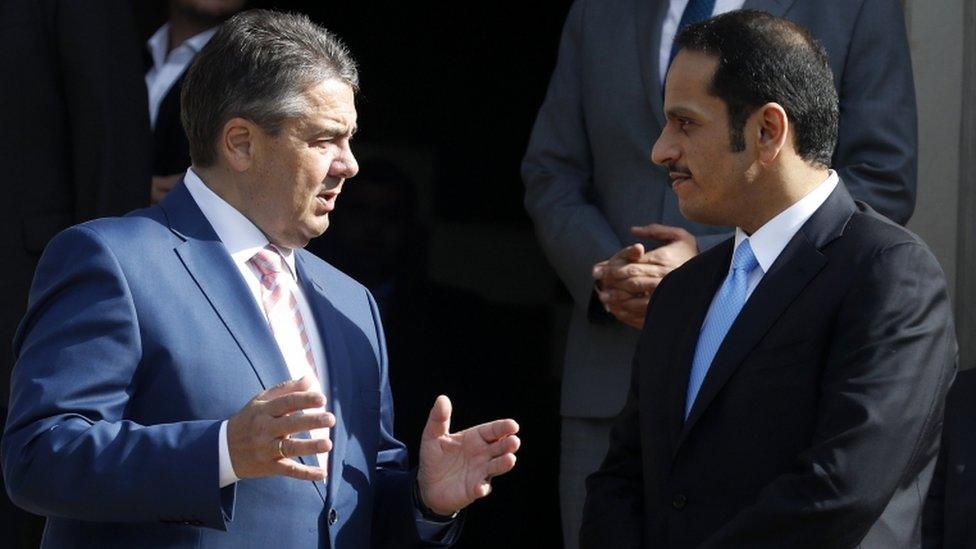
German Foreign Minister Sigmar Gabriel met his Qatari counterpart in northern Germany
Germany has called for diplomatic efforts to resolve a growing crisis over Qatar, which is accused by four Arab neighbours of funding terrorism.
Saudi Arabia, the United Arab Emirates (UAE), Egypt and Bahrain cut travel and diplomatic ties with Qatar on Monday.
Speaking after hosting his Qatari counterpart on Friday, German Foreign Minister Sigmar Gabriel called for the "sea and air blockades" to be lifted.
The Qataris deny accusations that they support Islamist extremists.
Ever since the dispute between Qatar and its neighbours erupted, Germany has pushed for a diplomatic solution.
Mr Gabriel met Saudi Foreign Minister Adil al-Ahmad al-Jubayr two days ago, and said all parties were seeking "to avoid further escalation".
Then on Friday, Mr Gabriel spoke to Qatari Foreign Minister Sheikh Mohammed bin Abdulrahman al-Thani in the northern German town of Wolfenbuettel.

"We are convinced that now is the hour of diplomacy and we must talk to each other; along with our American colleagues but above all our colleagues in the region, we must try to find solutions, especially lifting the sea and air blockades," he told reporters afterwards.
US President Donald Trump discussed Qatar and the need for Gulf unity with Egyptian President Abdel Fattah al-Sisi on Friday.
Earlier in the week he spoke to Saudi Arabia's King Salman.
However, Mr Trump had earlier claimed credit for the pressure placed on Qatar, saying his recent visit to Saudi Arabia was "already paying off".
The emir of Kuwait is trying to mediate the row, carrying out shuttle diplomacy between Qatar, Saudi Arabia and the United Arab Emirates (UAE).
'No surrender'
Also on Friday, Saudi Arabia and its three allies issued a list of 49 people - including Muslim Brotherhood spiritual leader Yusuf al-Qaradawi - and 12 Qatar-backed charities and groups accused of links with militants.
Qatar responded by saying that the list reinforced "baseless allegations".
He also called the moves against Qatar "violations of international law and international humanitarian law".
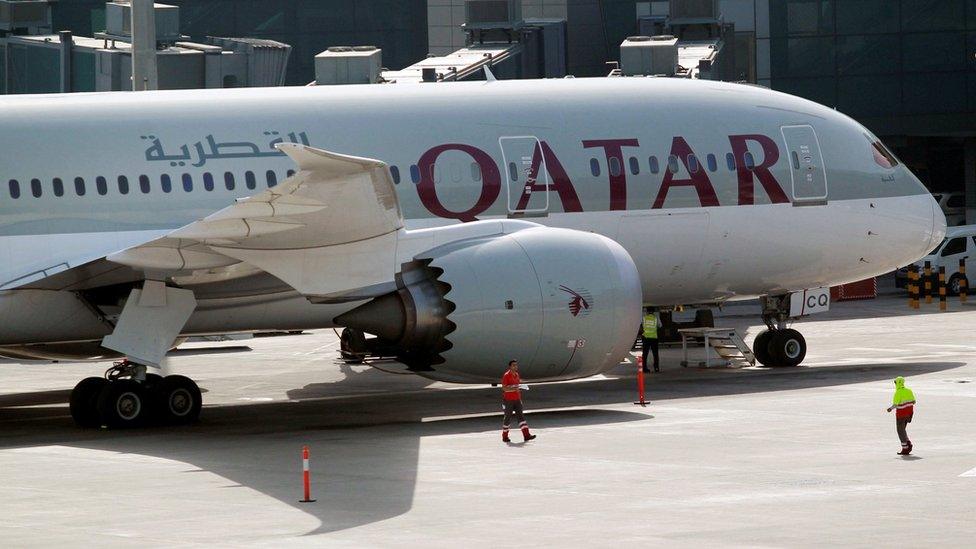
Saudi Arabia and several other Arab states have suspended flights to and from Qatar
On Thursday, Qatar's Sheikh Mohammed said his country had been isolated "because we are successful and progressive" and called his country "a platform for peace not terrorism".
He added: "We are not ready to surrender, and will never be ready to surrender, the independence of our foreign policy."
Qatar is heavily dependent on food imports and the crisis has led to stockpiling and shortages.
The economic disruption could have an impact on Qatar if the dispute drags on
Saudi Arabia has said Qatar needs to cut ties with the Palestinian Islamist group Hamas in the Gaza Strip, and the Muslim Brotherhood in Egypt, if it wanted to end its isolation.
Qatar is home to the biggest American airbase in the region.
- Published8 June 2017

- Published7 June 2017
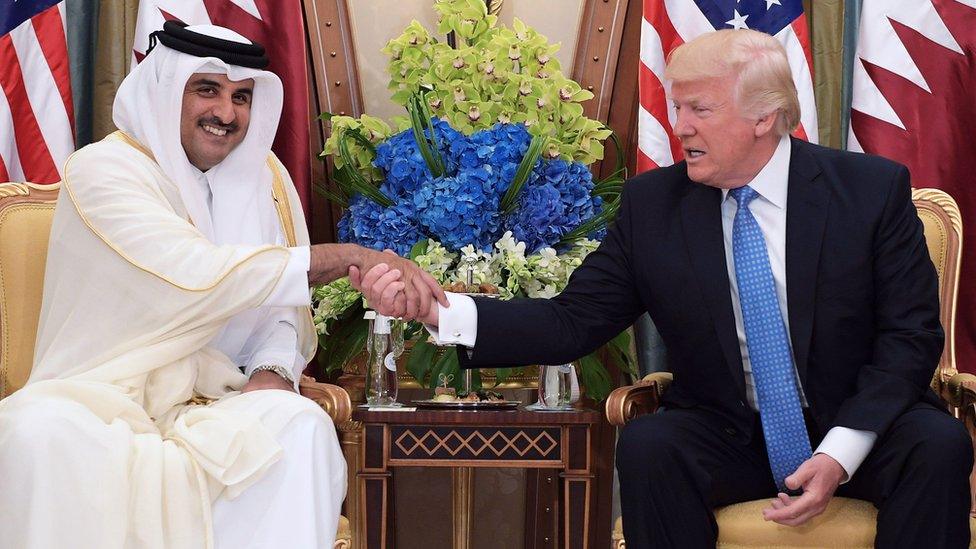
- Published6 June 2017
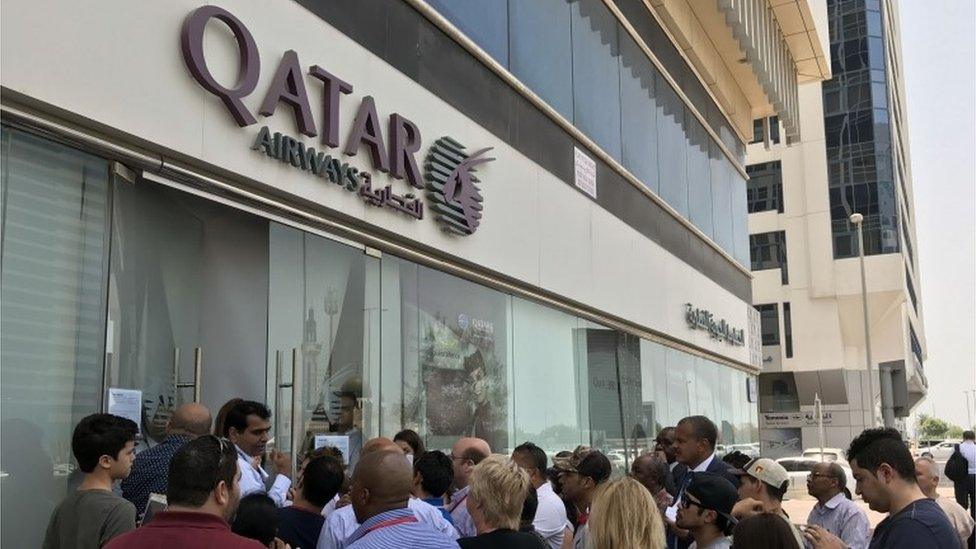
- Published6 June 2017
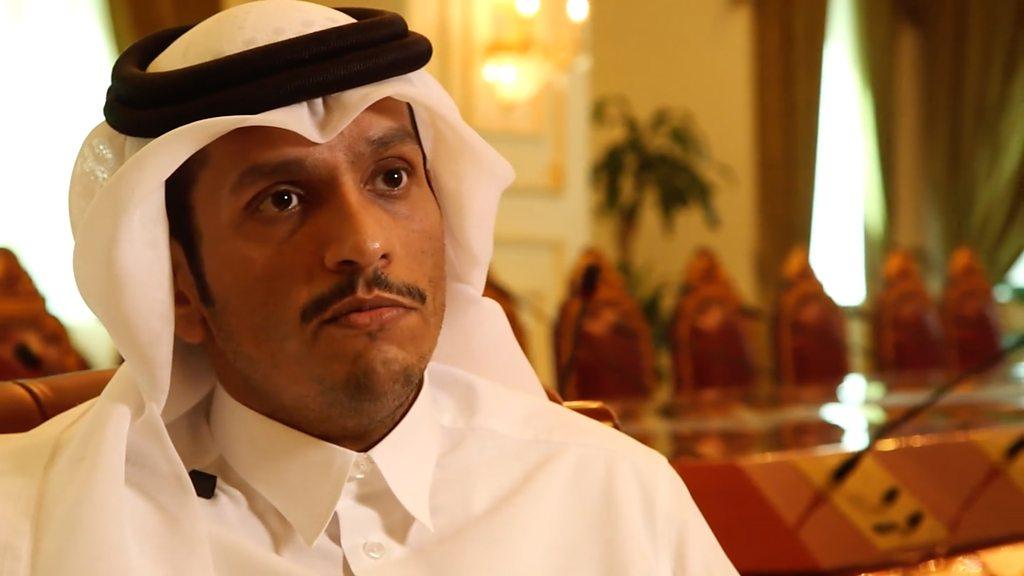
- Published19 July 2017
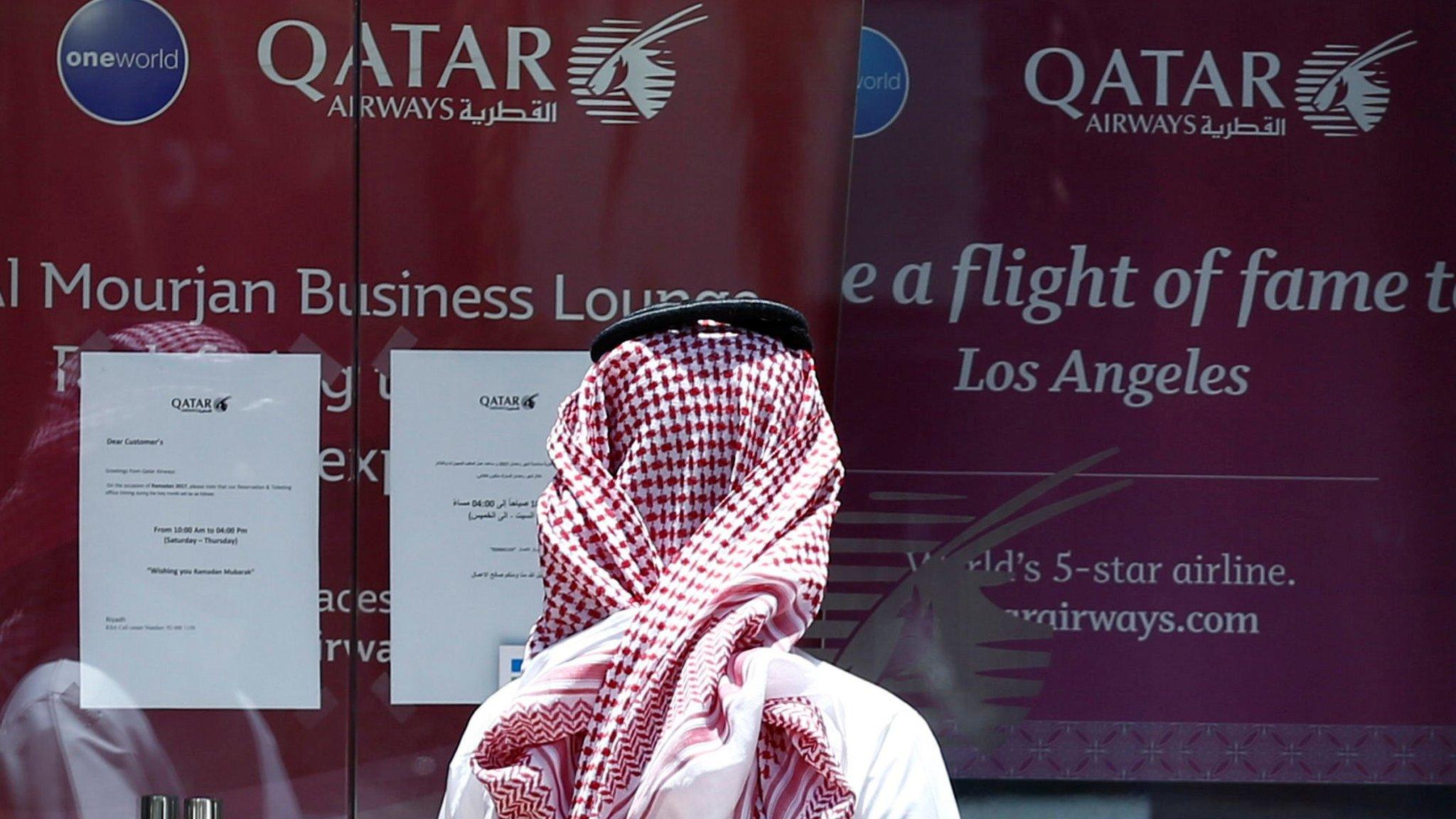
- Published6 June 2017
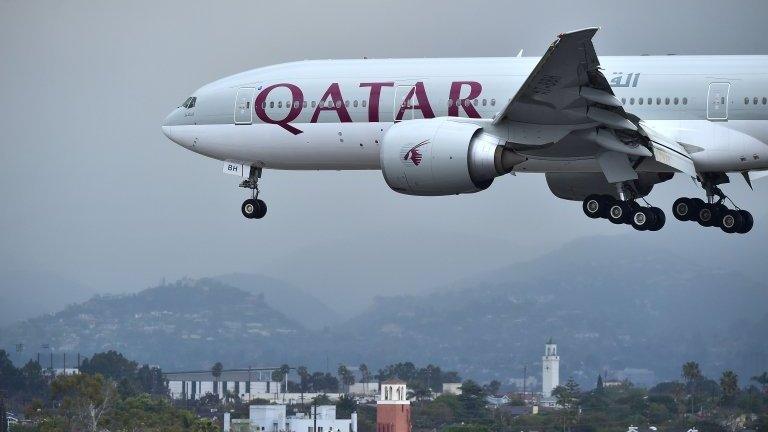
- Published5 June 2017
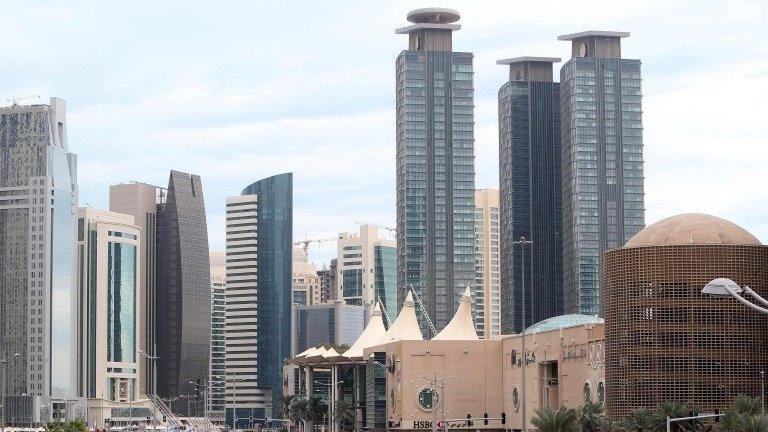
- Published6 June 2017
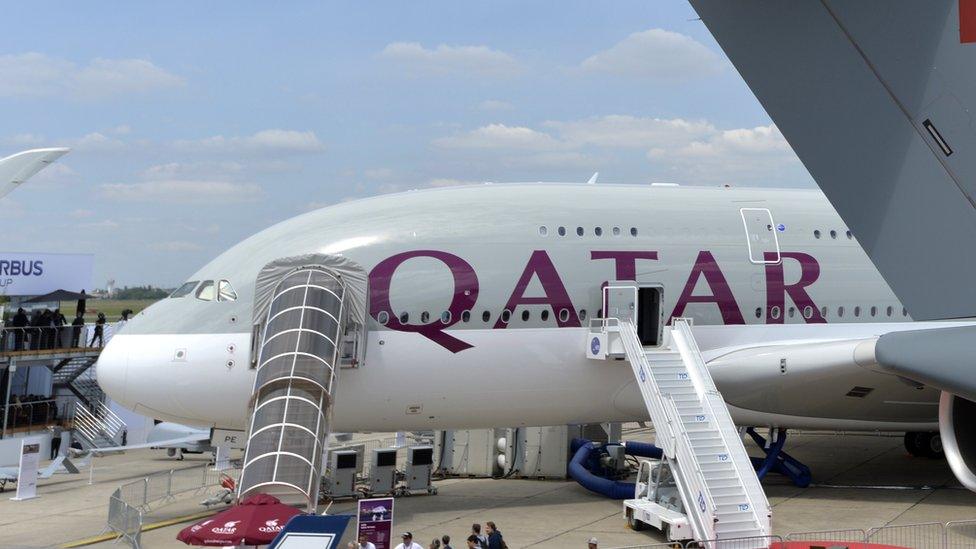
- Published5 June 2017
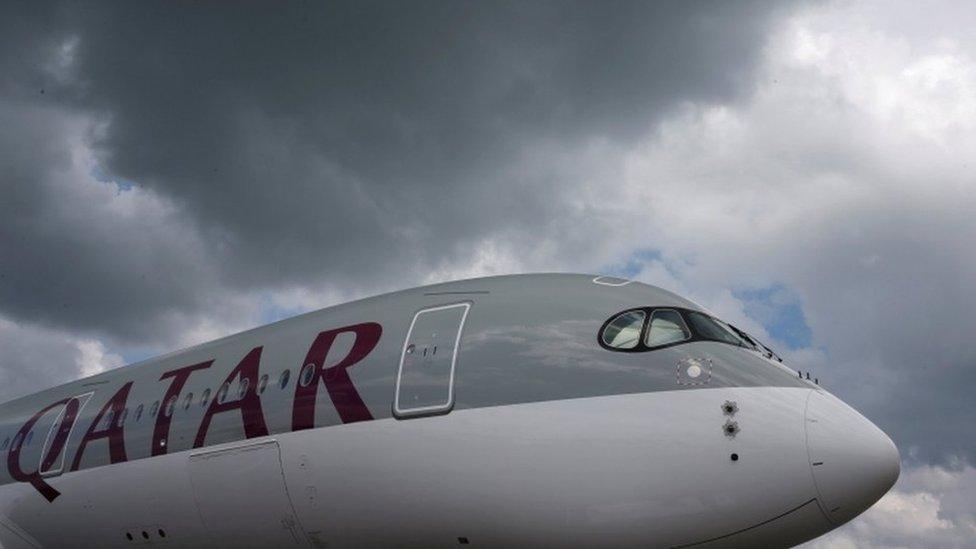
- Published5 June 2017
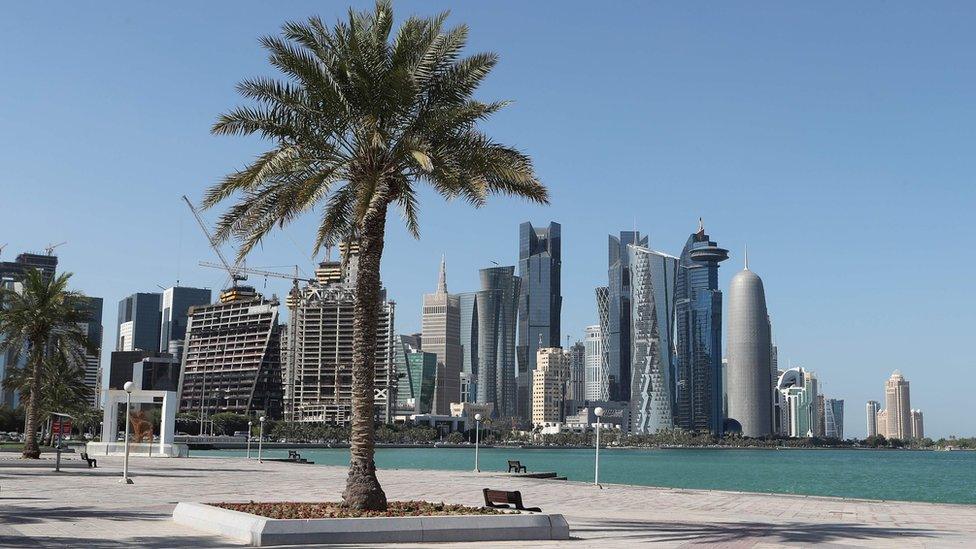
- Published5 June 2017

- Published5 June 2017

- Published25 May 2017

- Published7 September 2023
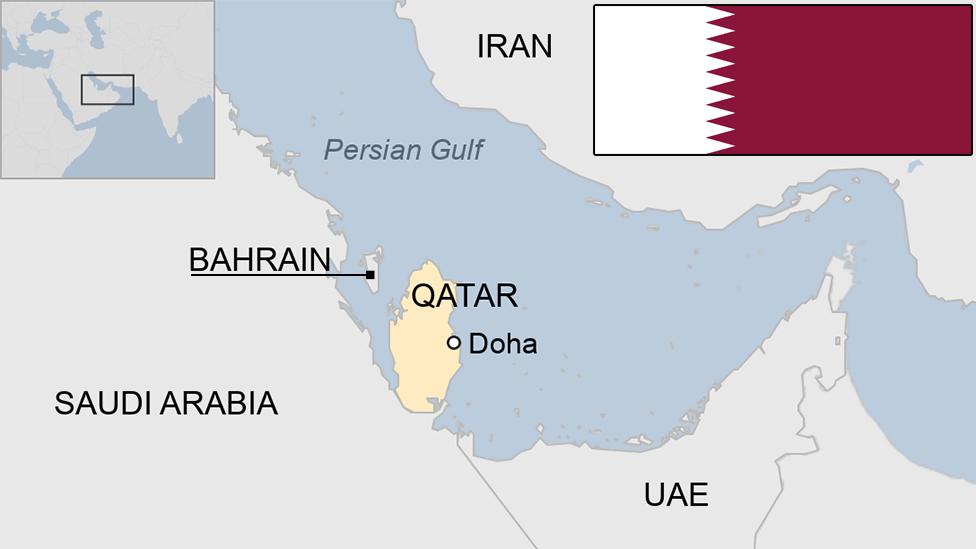
- Published3 December 2015
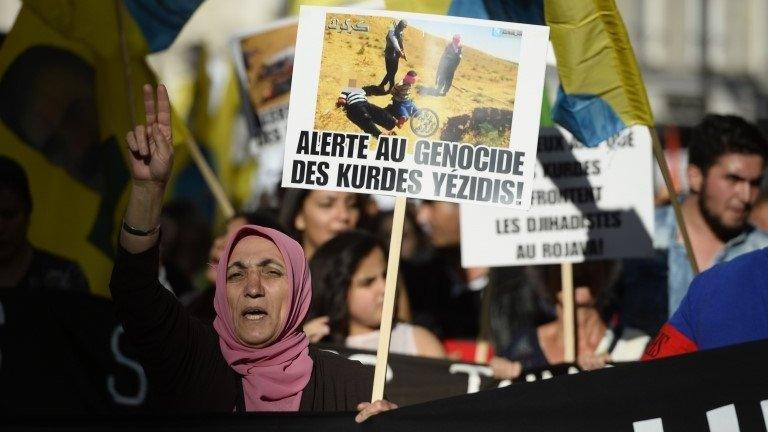
- Published5 June 2017
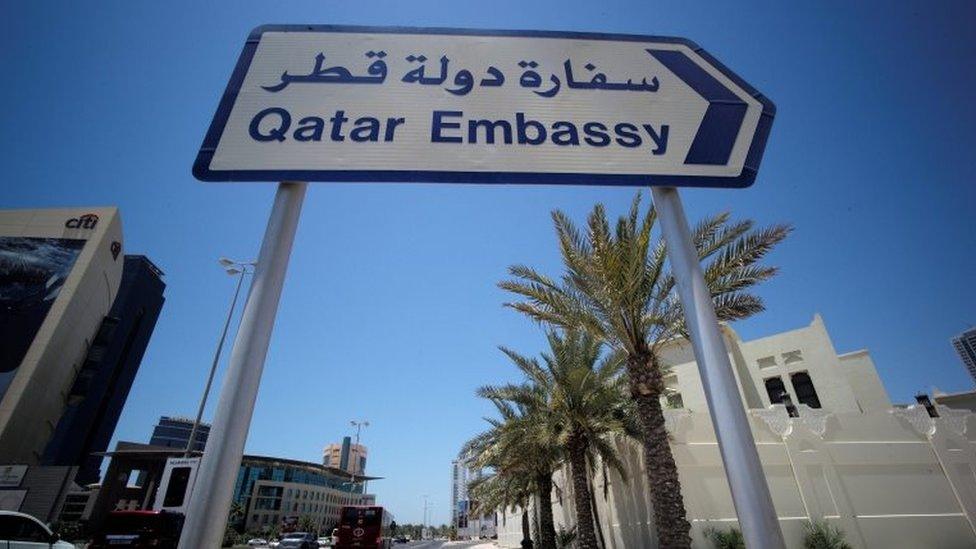
- Published13 April 2015
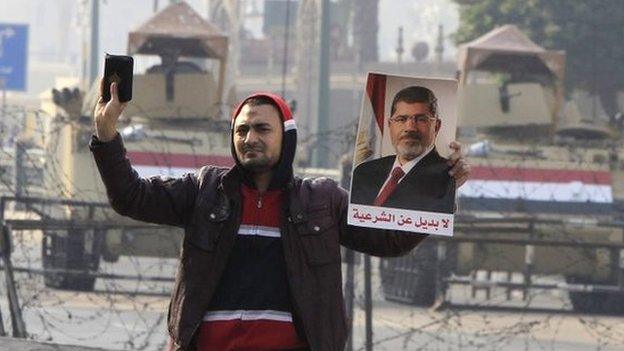
- Published1 July 2021
